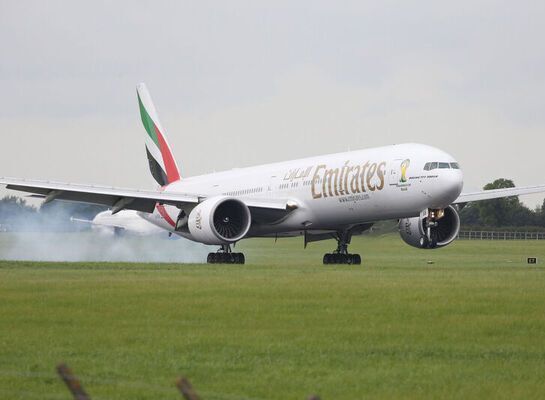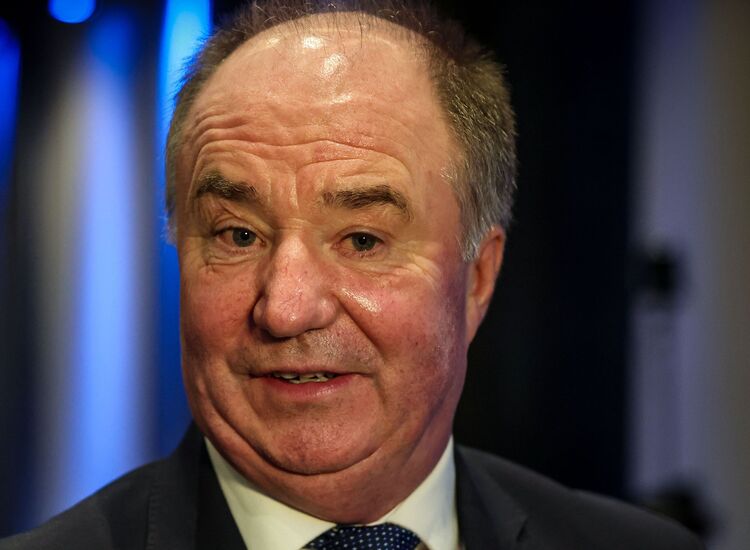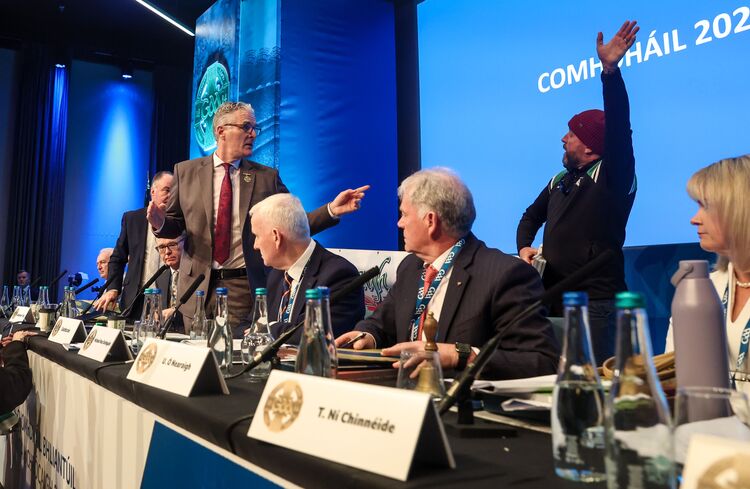Page Turner / Edited by Peter McDermott
They say: write what you know. Stephan Talty, though, has written about where he knows in his sixth book, which is his first novel.
In “Black Irish,” Abbie Kearney, a Harvard-educated detective, returns to her hometown of Buffalo where she investigates a series of murders connected to her past. Abbie was adopted by a legendary detective and raised in the County, an Irish-Catholic stronghold that thrives on secrets.
“The setting is inspired by the place I grew up in, South Buffalo, one of the last Irish enclaves in the Northeast,” Talty said. “The County and South Buffalo aren't the same place, but they have the same DNA.”
One of County’s secrets is a shadowy organization that seems to be behind the killings. “Abbie has to untangle this web of ancient history even as the killer closes in on his victims,” Talty said.
The author, whose parents Vince and Brigid Talty met in America after they’d emigrated from County Clare, has won the sort of superlatives for his non-fiction work that thriller writers covet -- for example: “a ripping yarn,” “a swashbuckling adventure,” “elegantly crafted” and “more intrigue and excitement as you’d find in a le Carré novel.”
Little wonder, then, that early reviewers of “Black Irish” are demanding more Abbie Kearney books.
The Stephan Talty File
Date of birth: July 2, 1964
Place of Birth: Buffalo, N.Y.
Married: Mariekarl Vilceus-Talty
Children: Asher, 7, and Delphine, 4
Residence: Montclair, N.J.
Published works: “Mulatto America: At the Crossroads of Black and White Culture: A Social History”; “Empire of Blue Water: Captain Morgan's Great Pirate Army, the Epic Battle for the Americas and the Catastrophe That Ended the Outlaws' Bloody Reign”; “The Illustrious Dead: The Terrifying Story of How Typhus Killed Napoleon's Greatest Army”; “Escape from the Land of Snows: The Young Dalai Lama's Harrowing Flight to Freedom and the Making of a Spiritual Hero”; “Agent Garbo: The Brilliant, Eccentric Double Agent That Tricked Hitler and Saved D-Day.”
What is your writing routine? Are there ideal conditions?
I take my kids to school in the morning, then sit down and surf the Internet until 10 a.m. or so. Then guilt begins to build and hopefully I start writing and don't stop until I finish at least three pages. I tend to rough out a first draft and then go back and revise and revise.There really are no ideal conditions. I love to write in a cafe where there's a constant murmur and blur of people moving around but no conversation loud enough to actually listen to. Then you're inhabiting two worlds, the world of the cafe and the life of the novel you're writing, and you feel like you're missing nothing.
What advice do you have for aspiring writers?
The really important thing is that you get better with time, that you slowly become able to do things you weren't able to do last month or last year. You can feel this happening, but it sometimes takes a long time. I wrote my first novel when I was first out of college and I was working at Doubleday Publishing as an editorial assistant, making $16,000 a year. The book was terrible and my editor basically told me to bury it out in the woods at midnight so no one would know it ever existed. But 25 years later, I started writing "Black Irish" and, having been a journalist and nonfiction writer, I was able to do things I had no clue about before: control the pacing, make characters distinct, write dialogue, etc. If what you're writing is more alive than what you did last year, don't give up.
Name three books that are memorable in terms of your reading pleasure.
“The Great Gatsby” is, to me, a perfect novel, so full of pleasures and not a line that's badly formed. I was obsessed with it and with Fitzgerald as a kid; one of my first pieces of journalism was a feature on his Celtic roots for Irish America magazine. “The Silence of the Lambs” is the best modern thriller, hands down, and Harris is able to give you so many unexpected things that you don't usually find in suspense novels. And the Travis McGee novels of John D. MaDonald are completely original crime novels and they really ought to be rediscovered. I read them again and again.
What book are you currently reading?
I just finished “The Great Migration” by Isabel Wilkinson, which is a fantastic piece of work. As a writer of narrative nonfiction, you dream of subjects like that - and she did it full justice.
Name a book that you were pleasantly surprised by.
I recently finished "Wise Men" by Stuart Nadler. The first part is a story about love and money on Cape Cod and it's mesmerizing. You can really taste the salt-laced air in those pages. The book sort of falls apart toward the end, but Part I is perfect.
If you could meet one author, living or dead, who would it be?
Fitzgerald, as tortured as he was. He just seemed alive in a way that few other people are or were. He could be a terrible human being at times, but that goes with the territory.
What book changed your life?
“Gatsby.” I think it was Borges who said that he took charm to be a kind of genius, and “Gatsby” is the most charming book ever written. It's pure personality. It made me want to be a writer but also to lead a fuller life.
What is your favorite spot in Ireland?
I'm not really a fan of wide-open spaces, so it would be a crowded Dublin street corner at rush hour. People to me are infinitely more interesting than landscapes. I lived in Dublin for two years in the late 1980s and even though I nearly starved, I have fond memories of it.
You're Irish if...
You occasionally feel more at home in a pub than anywhere else.
PHOTO OF STEPHAN TALTY BY KYLE DEAN REINFORD










